Fire and fury: The impact of a Korean strike on Guam
North Korea's threatened attack could mean for the US and 6,000 American troops in the Pacific

A free daily email with the biggest news stories of the day – and the best features from TheWeek.com
You are now subscribed
Your newsletter sign-up was successful
When Kim Jong-un threatened to strike Guam, he threatened the heart of US interests in the Pacific region, a pivotal military base midway between the Korean Peninsula and the South China Sea.
We'll hit North Korea with fire and fury, vows Trump
The tiny ocean territory is home to Andersen Air Force Base, strategic US bombers, and 6,000 American troops and their families.
The US deploys its Terminal High Altitude Area Defense (Thaad) system around Guam. It's designed to shoot down any missiles aimed at US territories, so a North Korean missile could conceivably be destroyed before reaching its target. The ball would still be in Trump's court, however.
The Week
Escape your echo chamber. Get the facts behind the news, plus analysis from multiple perspectives.

Sign up for The Week's Free Newsletters
From our morning news briefing to a weekly Good News Newsletter, get the best of The Week delivered directly to your inbox.
From our morning news briefing to a weekly Good News Newsletter, get the best of The Week delivered directly to your inbox.
In July, North Korea test-launched a rocket with the potential to reach the US mainland. Experts believe the North already possesses medium-range missiles capable of delivering a nuclear warhead to much of South Korea and Japan, the New York Times reports.
A strike on Guam would likely be construed as a declaration of war on America – and US President Donald Trump has already promised North Korea it would respond with "fire and fury".
"Members of Donald Trump's administration have repeatedly signalled that they might be willing to use military force against North Korea – even if it inflicted on the Korean peninsula the worst human catastrophe in living memory," The Atlantic reports.
Quartz Media predicts a "nasty, brutish, and short" ground war could follow a North Korean strike on American interests.
A free daily email with the biggest news stories of the day – and the best features from TheWeek.com
"As long as China didn't get involved to help the North, the Kim-controlled Korean People's Army (KPA) would lose in a conventional ground war to the US and its allies within six weeks, a month, two months max," Robert E. Kelly, a professor at Pusan National University in South Korea, told Quartz Media.
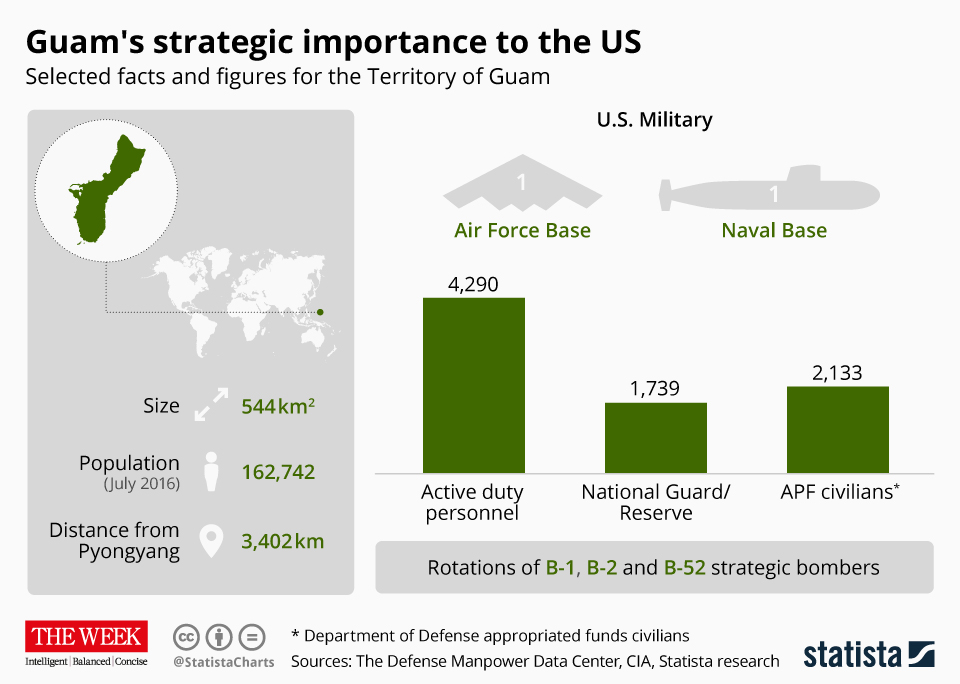
The US could choose to respond with a surgical strike on North Korea's nuclear facilities, but it probably wouldn't work.
"North Korea's missiles and nuclear facilities are dispersed and hidden throughout the country's mountainous terrain. Failing to hit them all would leave some 10 million people in Seoul, 38 million people in the Tokyo vicinity and tens of thousands of US military personnel in northeast Asia vulnerable to missile attacks – with either conventional or nuclear warheads," The Independent says.
South Korea stocked up on "bunker-busting" missiles last year, Quartz reports, in part to take out North Korea's heavily protected nuclear operations.
But even if the North's nuclear capability were wiped out, Seoul would remain vulnerable to attacks from artillery, The Independent says.
A more worrying result of a Guam strike is that it would draw in not just the US, South Korea and Japan but Russia, China and many of their allies.
The Chinese President Xi Jinping would probably want to prop up the Kim regime if a conflict ensued, as China would fear "both a refugee crisis and US troops on its border".
In that case, Quartz Media suggests, it would "almost certainly amount to suicide" for North Korea and Kim's regime, while its enemies are likely to face "a costly and divisive invasion and aftermath".
Infographic by www.statista.com for TheWeek.co.uk
-
 What to know before filing your own taxes for the first time
What to know before filing your own taxes for the first timethe explainer Tackle this financial milestone with confidence
-
 The biggest box office flops of the 21st century
The biggest box office flops of the 21st centuryin depth Unnecessary remakes and turgid, expensive CGI-fests highlight this list of these most notorious box-office losers
-
 The 10 most infamous abductions in modern history
The 10 most infamous abductions in modern historyin depth The taking of Savannah Guthrie’s mother, Nancy, is the latest in a long string of high-profile kidnappings
-
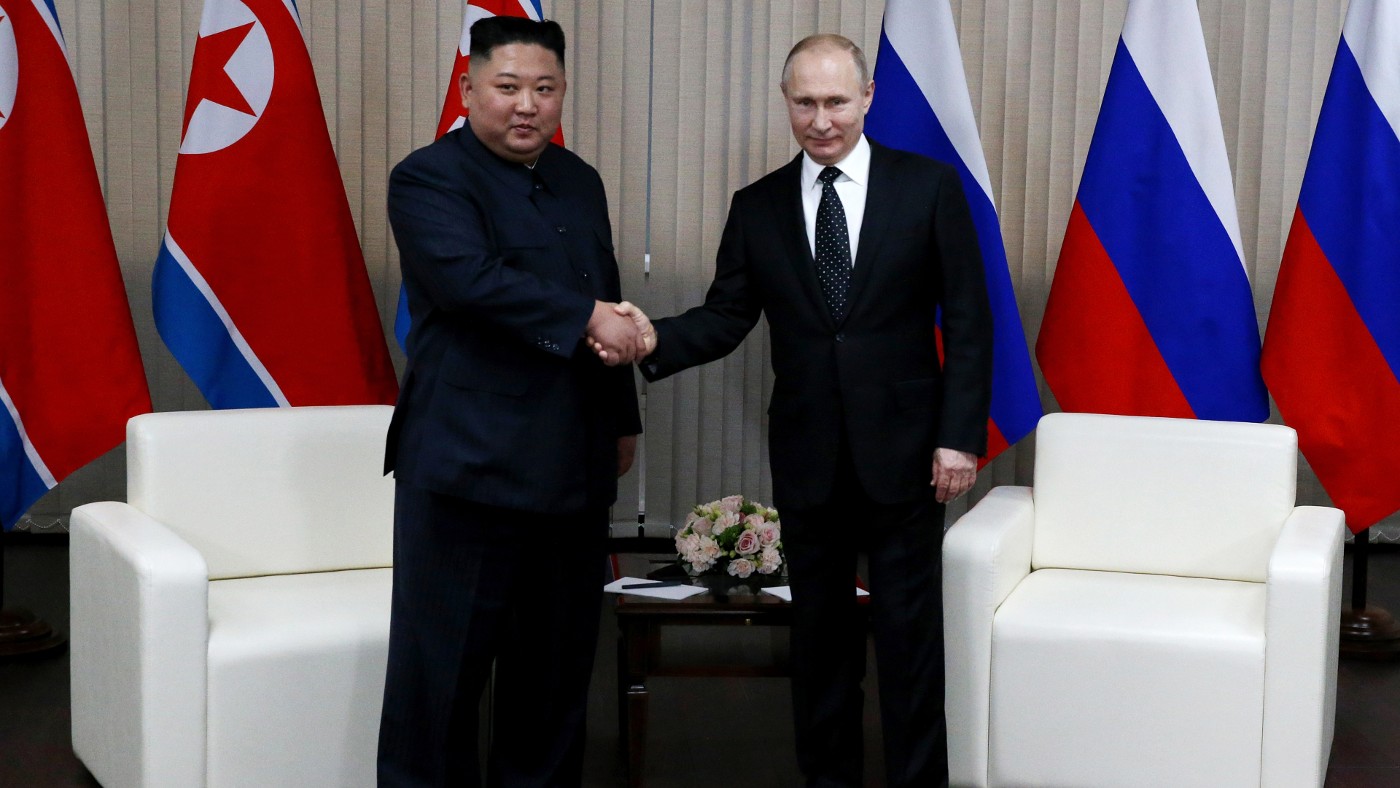 Would North Korean weapons tilt the war Russia’s way?
Would North Korean weapons tilt the war Russia’s way?Today's Big Question Putin wants to boost ‘depleted stocks’ but Pyongyang’s arms may be in poor condition
-
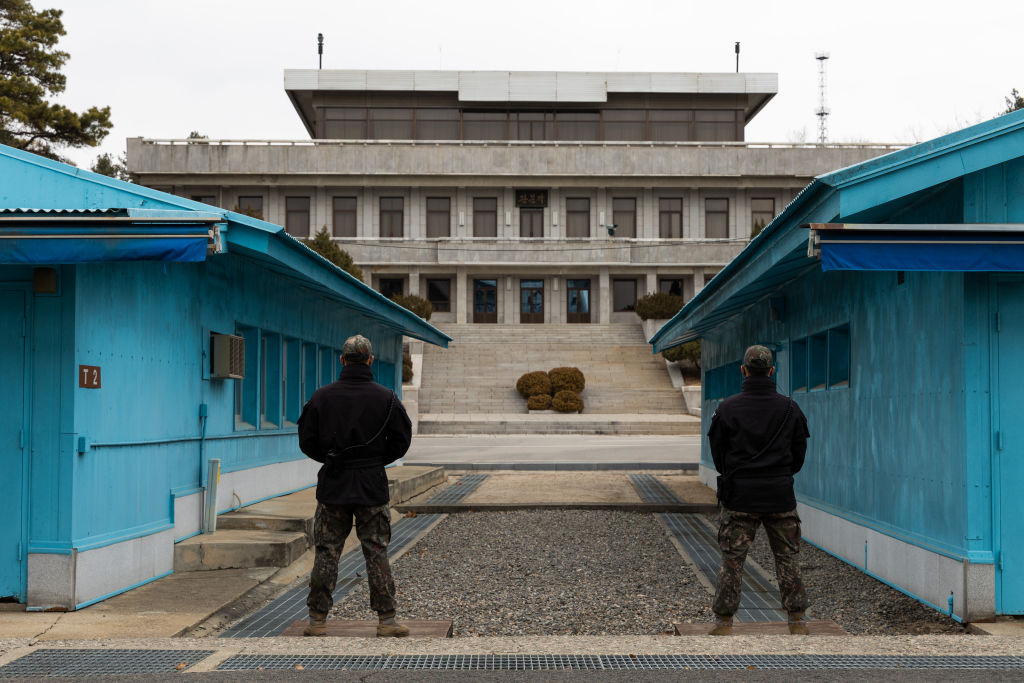 US soldier detained by North Korea after crossing border
US soldier detained by North Korea after crossing borderSpeed Read
-
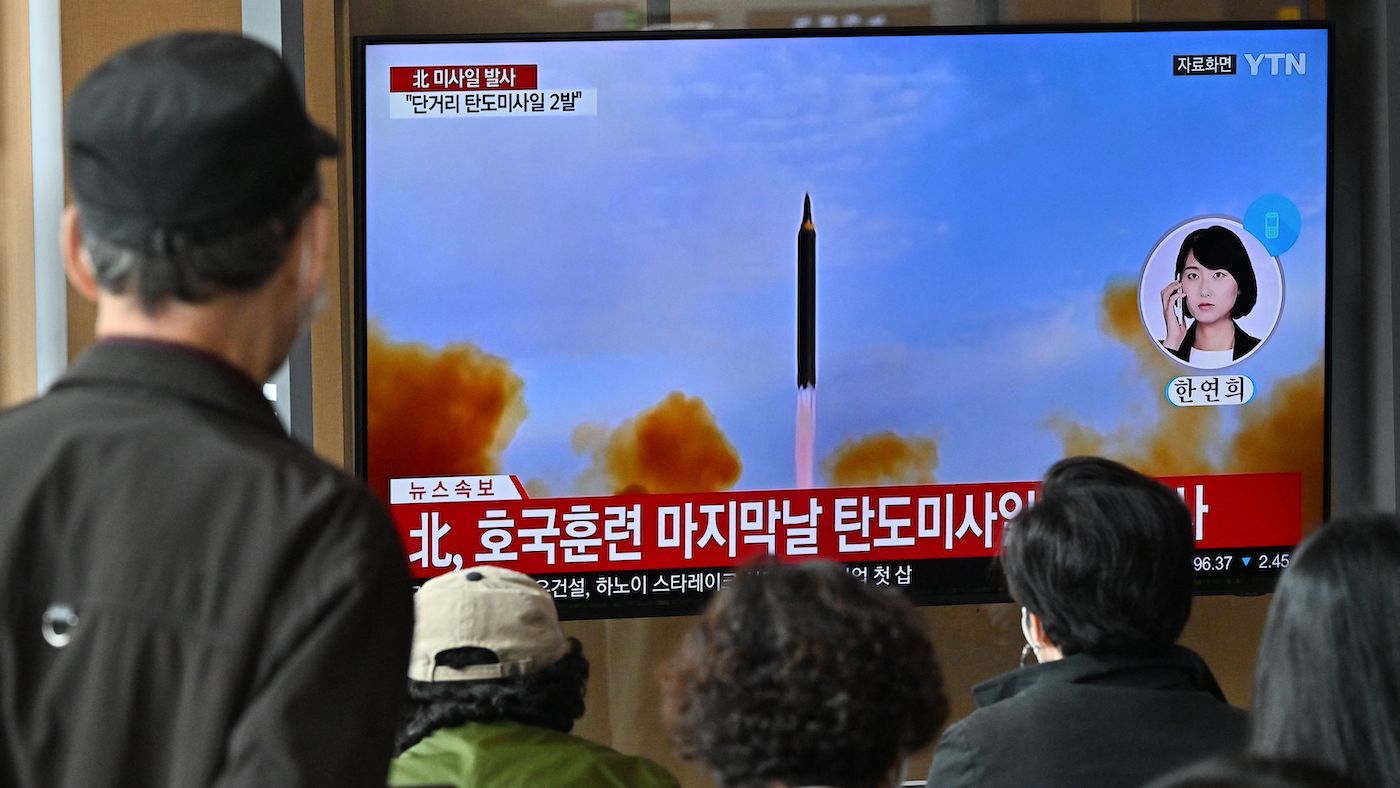 North Korea launches 1,000km missile towards Japan after threatening US
North Korea launches 1,000km missile towards Japan after threatening USSpeed Read Pyongyang warned Washington of ‘shocking’ repercussions over alleged spy planes
-
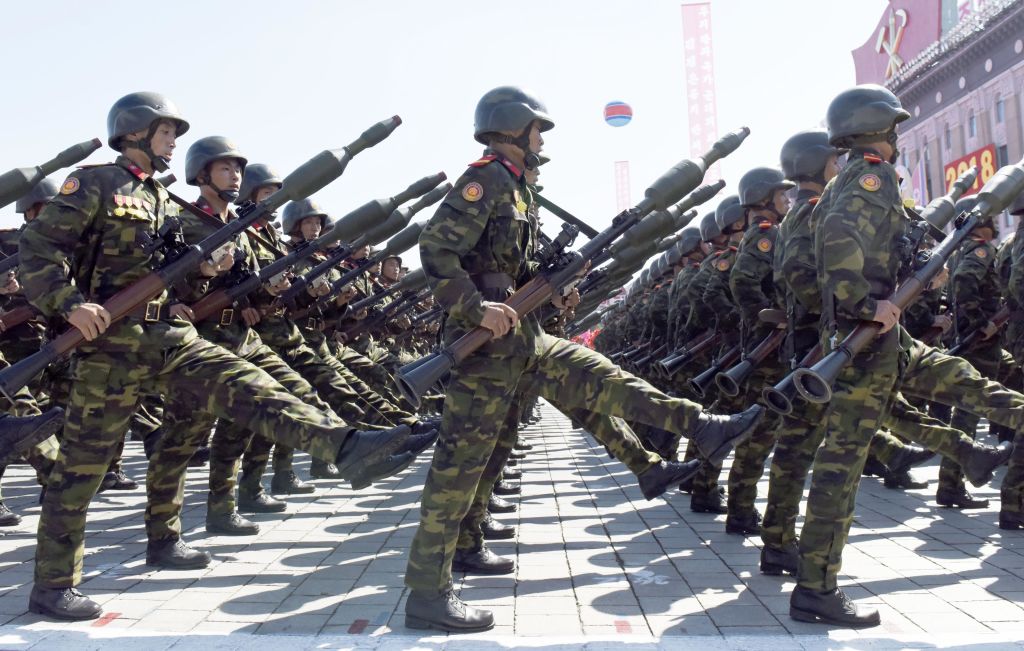 North Korea claims 800,000 people volunteered to fight against the U.S.
North Korea claims 800,000 people volunteered to fight against the U.S.Speed Read
-
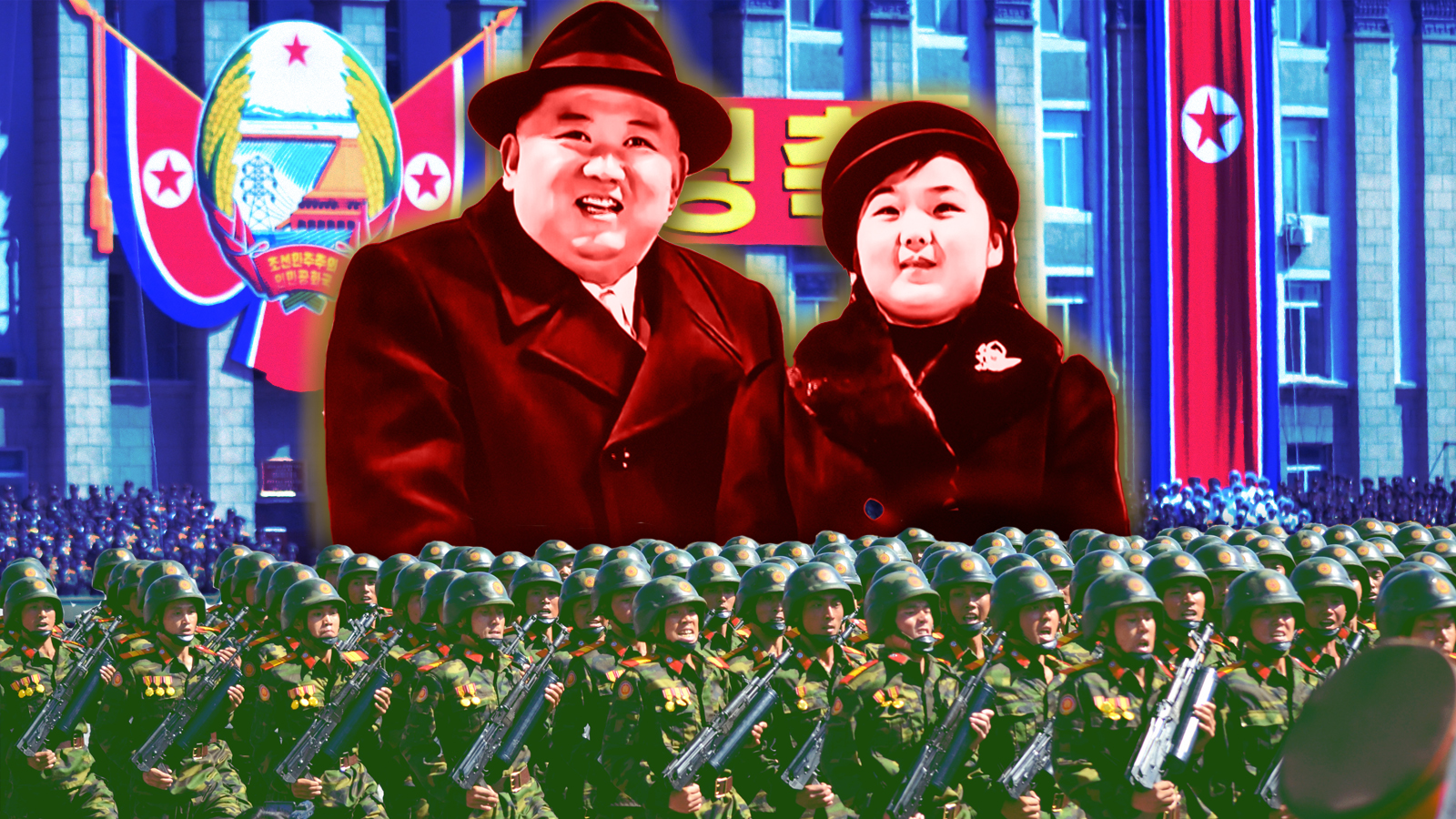 The next Kim Jong Un
The next Kim Jong UnSpeed Read Is his daughter's turn in the public eye any indication of the leader's succession plans?
-
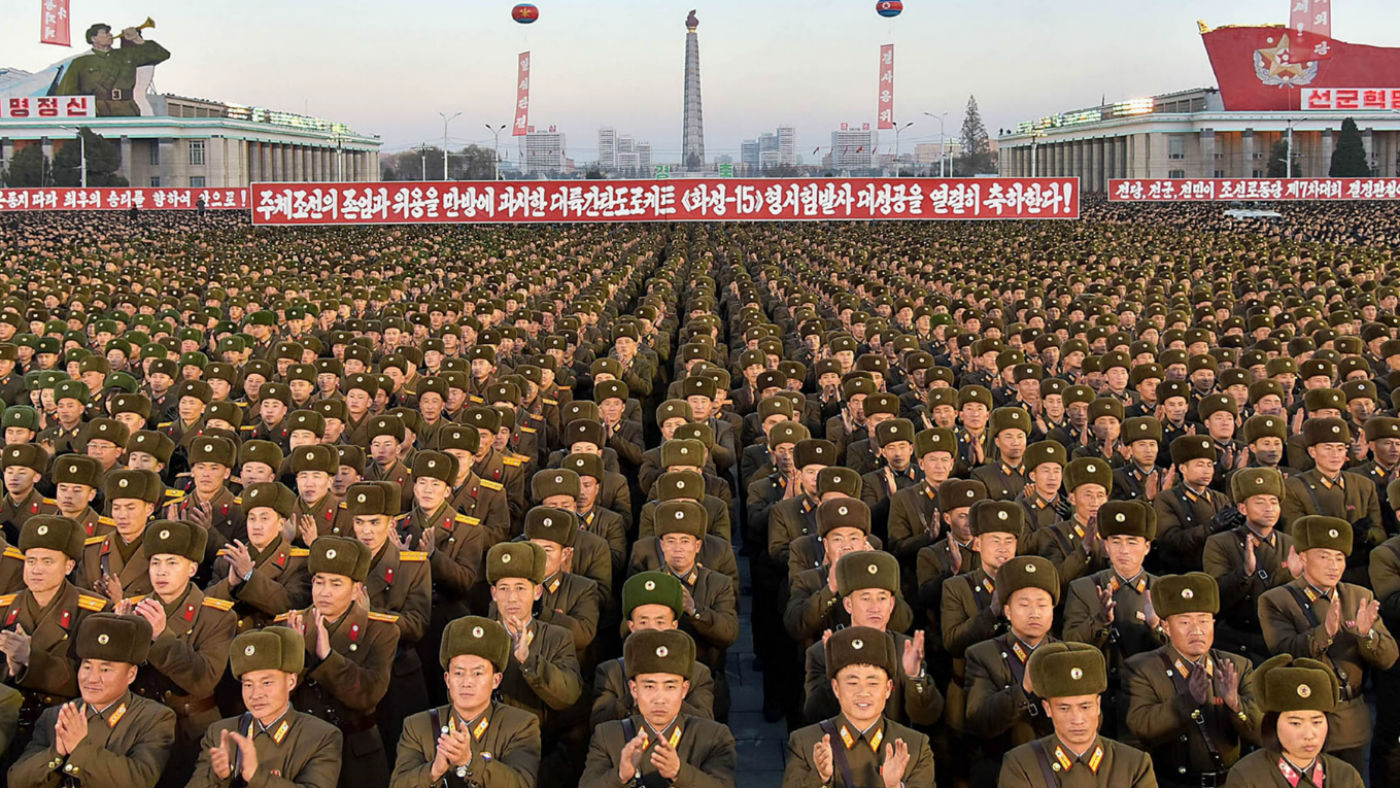 The Week Unwrapped: Korean succession, terror by algorithm and German disquiet
The Week Unwrapped: Korean succession, terror by algorithm and German disquietpodcast Could a 10-year-old girl rule North Korea? Will an Isis victim upend web law? And why is Germany upset with its Oscars contender?
-
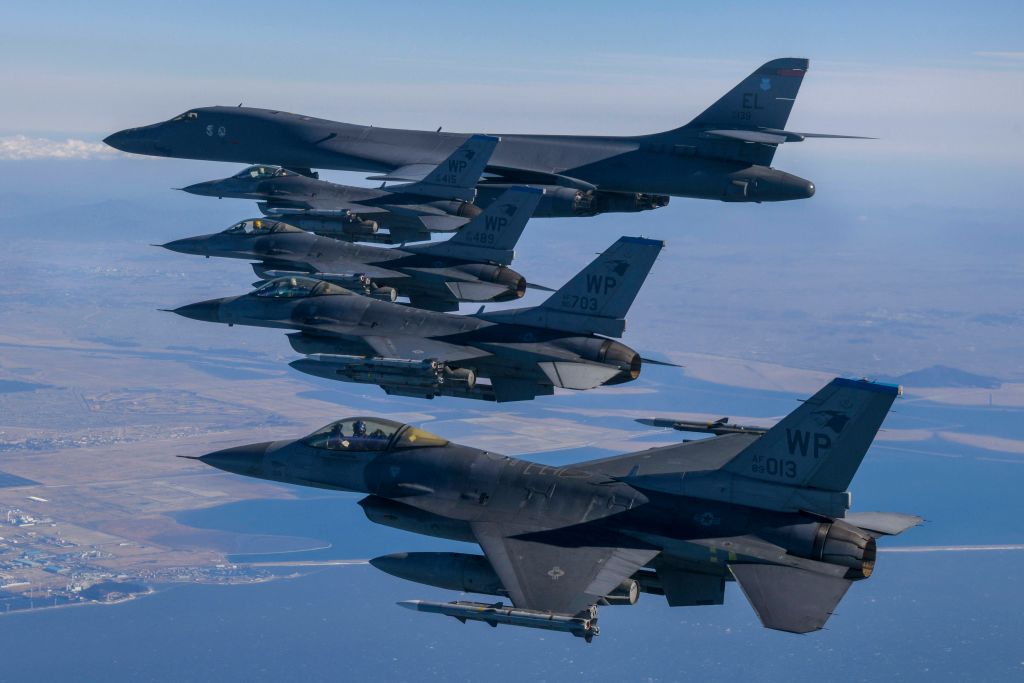 U.S. holds air exercises with Asian nations following North Korean missile test
U.S. holds air exercises with Asian nations following North Korean missile testSpeed Read
-
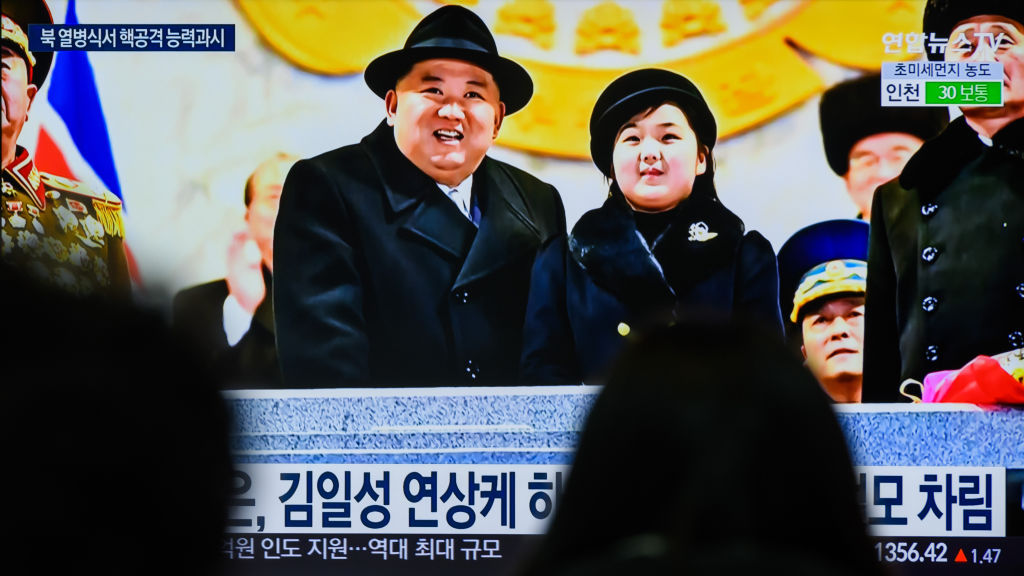 Kim Jong Un reportedly wants his daughter to be the only person in North Korea named 'Ju Ae'
Kim Jong Un reportedly wants his daughter to be the only person in North Korea named 'Ju Ae'Speed Read